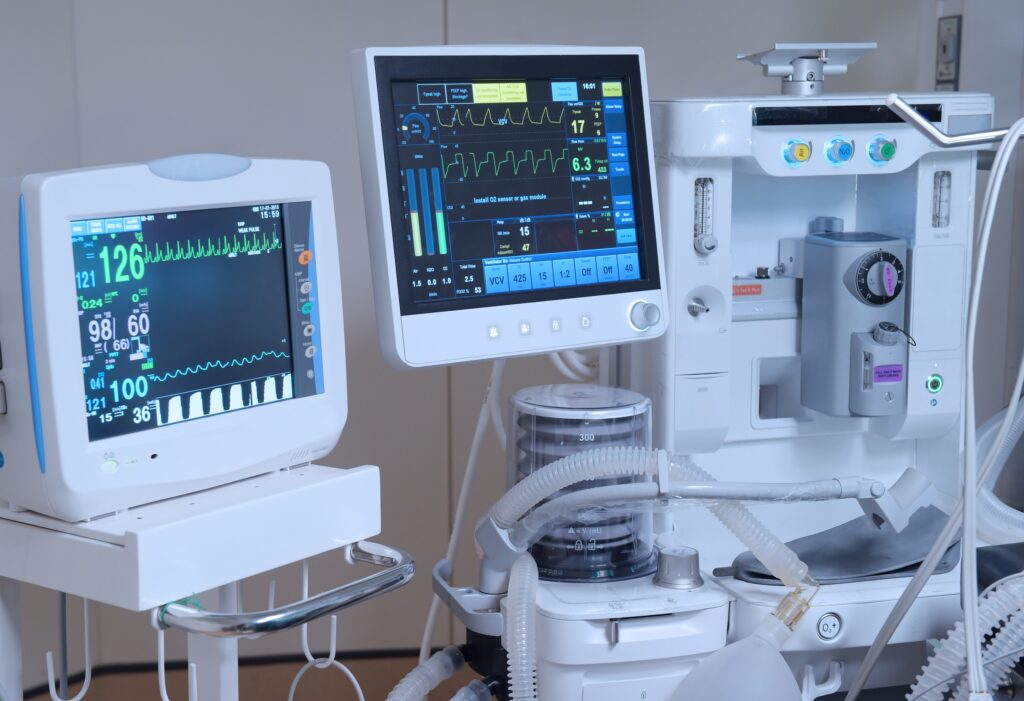As technological advancements surge forward, it’s critical to understand the nuanced contributions that even small components, such as nylon washers, can make to the overarching goal of improving medical devices. Nylon, a thermoplastic polymer, has emerged as a particularly potent player in the arena of medical device manufacturing. Its intrinsic properties bring about unprecedented performance and reliability, offering a leg up in a sector that demands precision and dependability.
Properties Of Nylon
Nylon stands out due to its unique blend of features. Here are some pivotal characteristics:
- High Strength: While being lightweight, nylon exhibits tremendous strength and toughness.
- Wear Resistance: Nylon offers exceptional wear resistance, ensuring longevity in applications with frequent moving parts.
- Low Coefficient of Friction: This reduces wear and increases the smoothness of motion.
- Good Chemical Resistance: In many medical applications, resistance to chemicals and solvents can be pivotal.
Benefits Of Nylon Washers In Medical Devices
- Durability in High Stress Environments: Given the dynamic environment of medical procedures, equipment faces tremendous physical stresses. Nylon’s innate toughness ensures these washers don’t wear out rapidly, ensuring longevity of the medical device.
- Reduced Maintenance: Owing to their wear-resistant nature, nylon washers seldom need replacements, leading to decreased maintenance.
- Cost-Effectiveness: Nylon’s combination of durability and low cost provides a cost-effective solution for medical device manufacturers.
Comparing With Other Materials
Metallic washers have long been the standard in many industries. However, when it comes to medical devices:
- Metals can corrode, particularly in the presence of bodily fluids. In contrast, nylon washers resist corrosion.
- Metallic washers may not always provide the necessary insulation. Nylon, being non-conductive, serves as an excellent insulator.
- The weight difference is notable. Nylon is substantially lighter than most metals, reducing the overall weight of the device.
Applications In The Medical Field
Nylon washers find themselves indispensable in various medical applications. For instance:
- Surgical Instruments: Tools used in surgeries require precise movements, and nylon washers ensure smooth operation.
- Diagnostic Equipment: The reliability of diagnostic equipment can be enhanced with this type of washer, ensuring consistent readings.
- Therapeutic Devices: Devices like pacemakers or insulin pumps benefit from the durability and chemical resistance of nylon.
Factors To Consider When Choosing Nylon Washers
While nylon washers offer numerous advantages, it’s essential to consider certain factors:
- Size and Shape: Ensure the washers fit perfectly within the medical device.
- Temperature Resistance: Some medical devices may operate under specific temperature conditions. Ensure the nylon used can withstand these temperatures.
- Regulatory Standards: The medical industry is governed by stringent standards. Ensure the nylon washers used comply with these.
Integrating Nylon Washers Into Device Design
When designing or refining medical devices, the inclusion of nylon washers can substantially boost performance. However, this integration isn’t as straightforward as merely replacing a metal washer with its nylon counterpart. Instead, designers need to thoroughly assess the compatibility with other materials present in the device.
The device’s operational environment must also be taken into account to ensure the nylon washer’s efficacy. Long-term performance evaluation is especially crucial for devices meant for extended use. Through meticulous design and thoughtful integration, these washers can offer significant advantages in medical device applications.
Challenges In Implementation
Manufacturers embarking on the transition to nylon washers inevitably encounter several challenges. Securing sources that provide high-quality nylon washers compliant with medical standards can be a daunting task. Simultaneously, maintaining a consistent uniformity in the properties of these washers is paramount for device reliability.
The upfront investment required to make the shift can also pose financial concerns. However, when balanced against the long-term benefits, these challenges can be seen as mere stepping stones to greater innovation and efficiency.
Addressing The Challenges
To overcome these obstacles, manufacturers can:
- Collaborate with reputed suppliers known for high-quality nylon products.
- Invest in quality testing equipment to maintain consistent washer performance.
- Analyze the long-term cost benefits, focusing on reduced maintenance and increased device longevity.
The Future Of Nylon In Medical Devices
The trajectory of nylon’s integration into the medical device sector seems promising. Research is underway to develop even more durable and resistant forms of nylon, making its future in the medical industry bright and indispensable. As the medical field continues to demand materials that are both lightweight and robust, nylon fits the bill perfectly.
The adaptability and versatility of nylon also mean that its applications could extend beyond current uses, ushering in a new wave of innovative medical solutions. Stakeholders across the board, from researchers to manufacturers, recognize the potential of nylon, making it a focal point of investment and exploration.
FAQs
Q: Are there different types of nylon washers available?
Yes, various types, like Nylon 6/6, offer varying degrees of strength, flexibility, and chemical resistance.
Q: How does this type of washer fare against heat?
Nylon washers generally maintain their properties in temperatures up to 85°C. However, prolonged exposure to higher temperatures can affect their performance.
Q: Are these washers safe for all medical applications?
While nylon is generally safe, it’s crucial to ensure it’s compatible with the specific medical application in question.
Q: How does nylon’s weight compare to traditional materials like metal or rubber?
Nylon is considerably lighter than most metals and often offers a weight advantage over rubber in similar applications.
Q: Is nylon resistant to UV radiation and other environmental factors?
Yes, nylon has inherent UV resistance and can withstand various environmental conditions, although prolonged exposure might affect its properties.
Q: Can nylon washers be customized to fit specific medical device designs? Absolutely, these washers can be manufactured in various shapes, sizes, and thicknesses to cater to specific device requirements.
The influence of nylon washers in the medical sector underscores the importance of small components in enhancing equipment reliability and performance. These washers, though seemingly insignificant, play a pivotal role in device optimization. Manufacturers, by harnessing the benefits of nylon, can elevate their device quality.
Furthermore, this enhancement goes beyond just the device, directly impacting and bettering patient experiences and results. This evolution signifies the limitless potential of integrating thoughtful materials into medical innovation.


